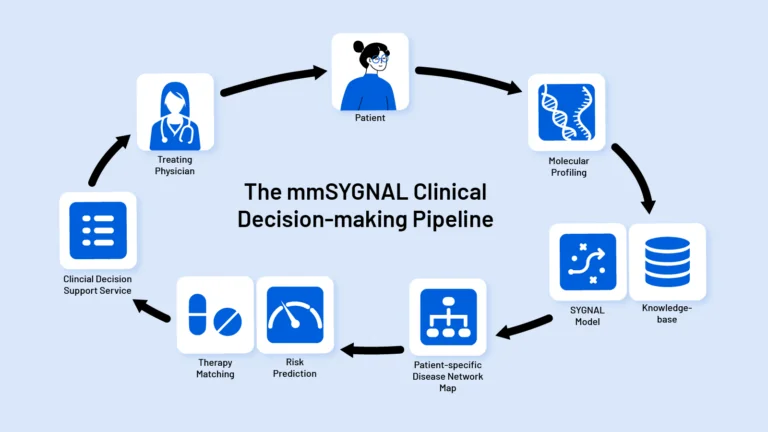Key Strategies for Implementing Proteomics-Based Tests Across Disease States Highlighted in Current Opinion in Biotechnology
ISB, Integrated Diagnostics and Sera Prognostics just announced a paper entitled, “The building blocks of successful translation of proteomics to the clinic,” by Leroy Hood and colleagues published online in Current Opinion in Biotechnology.

FOR IMMEDIATE RELEASE
SEATTLE and SALT LAKE CITY, Feb. 12, 2018 — Sera Prognostics, a women’s health company, in collaboration with The Institute for Systems Biology and Integrated Diagnostics (Indi), today announced a paper entitled, “The building blocks of successful translation of proteomics to the clinic,” by Leroy Hood and colleagues published online in Current Opinion in Biotechnology. The paper outlined six key strategies for successfully translating multiplexed tests using selective reaction monitoring (SRM-MS) mass spectrometry into clinical practice and highlighted strategies successfully utilized in the development of the only two multiplexed SRM-MS diagnostic tests currently used in clinical practice, Xpresys® Lung and PreTRM®. The paper will be printed in the June issue of Current Opinion in Biotechnology.
“This publication validates the use of a systems-biology approach as a valuable strategy for successfully developing multiplexed SRM-MS diagnostics, by helping to identify and prioritize relevant biomarkers and by informing discovery study design,” said Leroy Hood, MD, PhD, SVP and Chief Science Officer, Providence St. Joseph Health; Chief Strategy Officer, Co-founder and Professor, ISB. “This disease-agnostic technique holds value in supporting the development of proteomic tests across disease states and significantly advancing care for patients.”
Download the article (PDF) here.
Other strategies gleaned from the successful commercial development of Xpresys Lung and PreTRM are discussed in the paper. SRM-MS is highlighted as a superior diagnostic technology compared to currently used diagnostic methods due to its high specificity, high multiplexing capabilities and low assay development costs.
“The importance of highly multiplexed proteomics for understanding complex diseases and conditions, such as cancer and pregnancy, cannot be overstated. The general process described in this paper provides the blueprint for the successful development of proteomic solutions for a diverse range of clinically unmet challenges,” said Paul Kearney, Ph.D., President, Chief Science Officer and Co-Founder of Integrated Diagnostics.
“Together with Integrated Diagnostics and the Institute for Systems Biology, we are proud to have pioneered novel mass spectrometry proteomic diagnostic tests using rigorous systems-biology approaches,” said Gregory C. Critchfield, M.D., M.S., Chairman and Chief Executive Officer, Sera Prognostics. “SRM-MS is scalable and cost-effective, moving from a research tool into clinical production settings. This work offers a roadmap for developing future tests, enabling better diagnosis and stratification of patients according to disease sub-types, responses to therapy and potential outcomes. The technology holds great promise for meaningful advances in precision and personalized medicine in patients with conditions that have been traditionally very difficult to diagnose. PreTRM and Xpresys Lung are two examples of the kinds of new innovative tests made possible through careful scientific discovery and development.”
###
MEDIA CONTACT: Joe Myxter, Download the article (PDF) here., 206.732.2157
About the PreTRM® Test
The PreTRM® test is the first and only broadly clinically-validated blood test that provides an early and individual risk prediction for spontaneous preterm birth in asymptomatic, singleton pregnancies. The PreTRM test measures and analyzes proteins in the blood that are highly predictive of preterm birth. The PreTRM test can help physicians identify early in the pregnancy (as early as 19 weeks of gestation) which women are at increased risk for premature delivery, enabling more informed clinical decisions based on each woman’s individual risk. The PreTRM test is ordered by a medical professional. For more information about the PreTRM test, please visit www.PreTRM.com and the PreTRM test YouTube Channel. You can also join the conversation on Facebook and @PreTRM.
About Institute for Systems Biology
The Institute for Systems Biology is a nonprofit biomedical research organization based in Seattle. It was founded in 2000 by systems biologist Leroy Hood, immunologist Alan Aderem, and protein chemist Reudi Aebersold. ISB was established on the belief that the conventional models for exploring and funding breakthrough science have not caught up with the real potential of what is possible today. ISB serves as the ultimate environment where scientific collaboration stretches across disciplines and across academic and industrial organizations, where our researchers have the intellectual freedom to challenge the status quo, and where grand visions for breakthroughs in human health inspire a collective drive to achieve the seemingly impossible. Our core values ensure that we always keep our focus on the big ideas that eventually will have the largest impact on human health. ISB is an affiliate of Providence St. Joseph Health, one of the largest not-for-profit health care systems in the United States.
About Indi
Indi (Integrated Diagnostics) is redefining molecular diagnostics and creating powerful new tools for physicians to non-invasively assess and more effectively manage complex diseases to improve patient outcomes, reduce complications, and lessen costs to the healthcare system. With the company’s first breakthrough test, Xpresys Lung, which measures multiple blood proteins and identifies lung nodules with a high probability of being benign, physicians have the potential to reduce risks and the need for unnecessary invasive procedures. The company was co-founded in October 2009 by systems-biology pioneer Dr. Lee Hood, who in 2011 received the National Medal of Science from the U.S. government. His groundbreaking research is based on a systems biology approach, which measures hundreds of protein biomarkers found in blood to report on the physiological state of the body’s 50 major organs, such as the lungs. Investors include Baird Capital, InterWest Partners, Life Sciences Alternative Financing and the Wellcome Trust. Foundational intellectual property is exclusively licensed from the Institute for Systems Biology and Caltech. Learn more at www.indidx.com.
About Sera Prognostics, Inc.
Sera Prognostics is a global leader in high value women’s health diagnostics, delivering pivotal information to physicians to improve health and improve the economics of healthcare delivery for pregnant women. Sera is developing innovative diagnostic tests focused on the early prediction of preterm birth (PTB) risk and other complications of pregnancy. The Company recently launched its first product, the PreTRM® test, nationwide through LabCorp’s expansive network of 1,750 patient service centers. PreTRM is the first and only broadly clinically-validated blood test to accurately predict early in pregnancy the risk of premature birth. The test objectively reports to the physician the risk of premature delivery, enabling earlier proactive interventions designed to prolong gestation and improve neonatal health outcomes. Sera’s strong management team has significant clinical development and women’s healthcare diagnostic experience. Sera is backed by highly respected healthcare investors, including Domain Associates, InterWest Partners, Catalyst Health Ventures, the Bill & Melinda Gates Foundation, and LabCorp, the exclusive U.S. distributor of the PreTRM test. Sera is working with the Gates Foundation to translate the Company’s discoveries into technologies well suited for low-income countries in its journey to improve maternal and infant health globally. Sera Prognostics is located in Salt Lake City, Utah. For more information, please visit the company’s website at www.seraprognostics.com.
To download the official press release, please click here.


